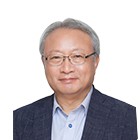Video
Publications
Issue Briefs
Publications | Issue Briefs
Assessing North Korea’s “20×10 Regional Development Policy”: Achievements, Limitations, and Implications One Year On
Han Ki-bum
3,7462025.04.17
North Korea’s regional development policy was initiated under Kim Jong Un’s leadership in 2024 as a means of alleviating the severe economic hardships and growing sense of relative deprivation experienced by local residents due to border closures during the pandemic. In 2025, the policy was significantly expanded under the banner of the “20×10 Regional Development Policy.” Large-scale infrastructure projects—including factories, hospitals, fish farms, greenhouses, and facilities for public health, cultural activities, and grain management—are currently underway in various regions. However, the policy’s sustainability is increasingly being called into question due to a severe shortage of resources, low levels of regional self-sufficiency, and the reliance on mass mobilization-based construction methods.
North Korea’s regional development policy is likely to fail as it faces serious sustainability challenges over the next two to three years, due to a lack of resources and a fundamentally anti-market policy orientation. When the 9th Party Congress, closer ties with Russia, and the so-called “bromance” between Kim Jong Un and Donald Trump begin to reveal their limitations, calls for reform and opening may intensify even within North Korea itself.
This article is an English Summary of Asan Issue Brief (2025-11).
(‘북한의 ‘지방발전 20×10 정책’ 평가: 지난 1년의 성과와 한계, 그리고 그 시사점’)

Han Ki-bum
Adjunct Senior Fellow
Dr. Han Ki-bum worked as a North Korea analyst at the National Intelligence Service over 20 years before retiring in February 2009 as the third deputy director (in charge of North Korea affairs). After retiring from the service, he worked as a visiting professor at Korea University and a visiting researcher at the Korea Institute for National Unification, And then served as the first deputy director of the NIS (in charge of North Korea and overseas affairs) again from April 2013 ~ February 2016. Since then, he has been working as a endowed Research Fellow at the Institute for National Unification, then as a endowed Research Fellow at the Institute for North Korean Studies, and as a Visiting Research Fellow at the Asan Institute for Policy Studies from January 2024.
view more


